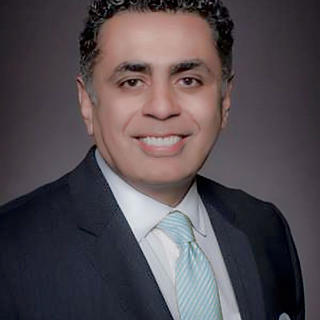How to Structure Earn Outs in Healthcare Deals Without Killing the Deal
- Dr Allen Nazeri DDS MBA
- Jun 15, 2025
- 4 min read

Earn Outs have become a standard solution in healthcare M&A for bridging valuation gaps between buyers and sellers. When properly structured, Earn Outs help align post-close incentives, reward future growth, and make complex deals possible. However, poorly executed Earn Outs can introduce mistrust, trigger disputes, and ultimately kill the deal they were meant to save.
In this article, we explore how to structure Earn Outs in healthcare deals without killing the deal, including real-world examples and a clear numerical breakdown of Earn Outs that succeed, and those that fail.
Earn Outs: A Tool for Alignment or a Ticking Time Bomb?
Earn Outs are deferred payment structures that tie a portion of the purchase price to future performance milestones—commonly revenue, adjusted EBITDA, or other agreed-upon benchmarks. They are especially useful in healthcare, where valuations can be skewed by reimbursement uncertainty, patient retention variability, or newly launched service lines.
But healthcare-specific risks—such as payer audits, provider turnover, or policy changes—can distort post-close financial outcomes. Without a clear, enforceable, and balanced Earn Outs agreement, buyers and sellers may find themselves entangled in disputes rather than focused on growth.
Earn Outs That Work: A Real-World Structure That Aligns Incentives
We recently advised on a transaction involving a multi-location behavioral health group. The company had shown significant EBITDA growth, and while the seller believed this trajectory would continue, the buyer had concerns about its sustainability. To bridge the gap, the parties agreed to include Earn Outs in the structure.
A Numerical Example of a 30% Earn Outs Structure in Healthcare M&A
Scenario:
Total Valuation: $10,000,000
Upfront Payment (70%): $7,000,000 at closing
Earn Outs (30%): $3,000,000 tied to future EBITDA performance
Measurement Period: 3 years
Performance Target: $2M EBITDA annually
Annual Earn Outs Cap: $1,000,000
Year 1:
EBITDA = $2.1M → Full Earn Outs payout = $1,000,000
Year 2:
EBITDA = $1.5M → 75% of target met = $750,000 Earn Outs payout
Year 3:
EBITDA = $1.0M → 50% of target met = $500,000 Earn Outs payout
Total Earn Outs Paid: $2,250,000Final Purchase Price: $7,000,000 + $2,250,000 = $9,250,000
This Earn Outs structure worked because it was based on a fair, clearly defined metric (EBITDA), a capped payout, and the seller retained some operational role to influence performance.
Earn Outs That Destroy Trust: A Healthcare Deal That Fell Apart
In contrast, we encountered a surgical specialty practice where the buyer proposed Earn Outs based on net income over five years—without giving the seller any operational control post-close. Key financial definitions were left vague, and there were no audit rights, escalation clauses, or agreed-upon accounting standards.
The seller saw these Earn Outs as a setup for failure. Net income could easily be manipulated through internal cost allocations. No protections were in place, and the extended timeline only magnified risk. The deal unraveled before legal documents were even finalized.
Key Elements to Structuring Earn Outs in Healthcare Transactions
When structuring Earn Outs, success depends on more than financial engineering—it requires shared understanding, clear language, and mutual trust. Here are the foundational components of strong Earn Outs agreements:
Selecting the Right Metrics for Earn Outs
In most healthcare transactions, EBITDA is preferred for Earn Outs, as it reflects operational profitability better than raw revenue or net income. However, the definition of EBITDA must be clearly agreed upon to avoid disputes later. Net income should rarely be used unless the seller retains financial oversight.
Operational Control and Its Impact on Earn Outs Success
The most common failure in Earn Outs is linking them to results that sellers cannot influence. If the seller is expected to remain in a leadership or advisory role post-close, tying Earn Outs to performance makes sense. But if they are stepping back completely, any such structure is risky and likely to breed resentment.
Conclusion: Earn Outs Must Be Built on Clarity, Fairness, and Trust
Well-structured Earn Outs can bridge price gaps and fuel post-close success. But they must be built on precise definitions, realistic timeframes, and balanced incentives. When both buyer and seller understand the purpose of the Earn Outs—and respect each other's role in achieving them—the result is a win-win outcome that supports long-term value creation.
If you’re evaluating or negotiating Earn Outs as part of a healthcare transaction, feel free to reach out. Getting the structure right from the start can be the difference between a closed deal and a collapsed one.
Dr. Allen Nazeri, aka "Dr. Allen," boasts over 30 years of global experience as a healthcare entrepreneur. He is the Managing Director at American Healthcare Capital and Managing Partner at PRIME exits. Dr. Allen provides strategic growth consulting to leadership teams of both privately held and publicly listed companies, ensuring their preparedness for successful exits.
He holds a Dental Degree from Creighton University and an MBA in M&A and Investment Banking from the University of Bedfordshire. Dr. Allen is the author of "Value Engineering: Strategies to 10X the Value of Your Clinic and Dominate the Market!" and the brand new book "Selling Your Healthcare Company at a Premium". Dr. Allen offers a free valuation to business owners ready for a partial or complete exit strategy. Dr. Allen collaborates with strategic buyers, private equity firms, and institutional investors, taking direct accountability for the annual successful sell-side representation of nearly $750M in enterprise value.
To have a confidential discussion about your company and receive a free valuation, please email Allen@ahcteam.com or Allen@ahcpexits.com
You can now communicate with Dr. Allen's clone https://www.delphi.ai/drallen





Comments